Analysis | If the MVP purely selects the "most valuable players", how many seats can James win at most?
(The original text was published on May 22, and the author is Andy Bailey in the open-air stands. The content of the article does not represent the translator's opinion) The Thunder's Alexander was crowned the regular season MVP for the first time in his career this year, and he caused heated discussions on the Internet. Everyone debated whether Jokic should win this fourth MVP trophy, or that he should have achieved five consecutive games this year. Jokic has entered the evaluation dimension: When people discuss his MVP competitiveness, it is usually said, "Jokic is indeed the best player in the league, but he is not the MVP because..." Jokic is not the first superstar to have a situation. Jordan has every reason to have more than five MVP trophys in his career, and James has dominated the league far more than the four years he actually won the award. But there are often deep reasons why historical stars miss MVP awards in specific seasons. The aesthetic fatigue of voters is a common factor, with Alexander, who led the Thunder to set a record average net win score this season, and Carl Malone, who topped the player efficiency value in the 1996-97 season, are all examples. If the MVP selection can really answer the question "Who is the most valuable player in the league this season?", what will be the number of MVP trophys for James? Andy Bailey from the open-air stands analyzed this. The four MVPs that James has won Conclusion: These four MVP trophys deserved 2008-09 season: James not only leads the league with a base of 13.2 (used to measure the player's contribution to the team when he is on the court), but this data ranks third in history (before Jokic has performed dominantly in the past five years). James led the Cavaliers to 66 wins, averaging 28.4 points, 7.6 rebounds, 7.2 assists, 1.7 steals and 1.1 blocks per game. 2009-10 season: James took a step further after winning the MVP for the first time in his career, increasing his average score to 29.7 points and assists to 8.6, leading the basic positive and negative list again. The Cavaliers he led were ahead of the league with a record of 61 wins. 2011-12 season: James continues his dominant performance and once again dominates the basic positive and negative list. Its offensive efficiency has made a leap, with averaging 27.1 points, 7.9 rebounds and 6.2 assists per game, both hitting a career high in three-point shooting percentage (36.2%) and real shooting percentage (60.5%). 2012-13 season: The following year, James once again set a new record of personal offensive efficiency, with three-point shooting percentage soaring to 40.6%, and his real shooting percentage reached 64%, while contributing 26.8 points, 8 rebounds, 7.3 assists. Without any suspense, he continued to lead the basic positive and negative list and led the Heat to win 6 games more than the second in the league. 2005-06 season Conclusion: Should win the award Data performance: Average 31.4 points, 7 rebounds, 6.6 assists and 1.6 steals, real shooting percentage 56.8%, basic plus and minus value 9.4 (first in the league), MVP voted second place About 20 years ago, two hosts of Mind the Game podcast have won the top two of MVP votes. Nash won the award for the second consecutive year, and James came second. Judging from the advanced data, James is obviously worthy of this award. James in his third year of his career topped the base positive and negative list for the first time (the final achievement was achieved seven times in his career), while Nash was only tied for 16th in the league. What's more amazing is that James took Eric Snow, Ilgoskas and Drew Gooden to play such a performance. Although the Cavaliers won 50 wins and 54 wins, Nash has two quasi-All-star helpers, Sean Marion and Boris Dior. Nash's winning logic is not difficult to understand: his incredible projection efficiency and passing art, as well as the influence of completely changing the Suns system, continued the judges' favor. But the most valuable player that season was actually James, although he ultimately failed to win the trophy. 2010-11 season Conclusion: Should win the award Data performance: Average 26.7 points, 7 rebounds, 7 assists and 1.6 steals per game, real shooting percentage 59.4%, basic plus-minus value 8.1 (first in the league), MVP votes for third place 2010-11 season is usually the first season to be mentioned when discussing James' "should have won the MVP". After the "Decision Door" incident, there was undoubtedly a sense of resistance among the judges. The summer before, James left his hometown team, the Cavaliers, and formed a super team with Bosh and Wade, completely rewriting the operating model of the free agent market. In his first season with the Heat, this team was easily portrayed as a league villain. The Bulls led by Ross became the perfect contrast, they won the first place in the Eastern Conference, and Ross (the final winner) averaged 25 points and 7.7 assists per game. However, James completely suppressed Ross in terms of scoring, rebounding, steals, effective hits and base positive and negative values. Although the Bulls won four more games than the Heat, James' personal net efficiency (the team's net score per 100 rounds when present) was still higher than Ross. Considering that James performed so well with his newly formed lineup, this year should have been his fifth consecutive MVP season. 2013-14 season Conclusion: Do not win awards Data performance: Average 27.1 points, 6.9 rebounds, 6.3 assists and 1.6 steals per game, with a real shooting percentage of 64.9%, a base positive and negative value of 8.8 (third in the league), MVP voted second place James' data this season is in line with his career normal, but Durant scored a phenomenal performance, winning the scoring champion and the base positive and negative value of the league with an average of 32 points per game, leading the Thunder to 59 wins (winning 5 more games than the Heat). Durant not only ended the possibility of James' MVP three consecutive games, but his award also did not have any factors of "fatigue with James' aesthetics". 2017-18 season Conclusion: Do not win awards Data performance: Average of 27.5 points, 9.1 assists, 8.6 rebounds and 1.4 steals per game, real shooting percentage 62.1%, basic plus-minus value 8.7 (second in the league), MVP voted second place James once again ranked second in the MVP vote with gorgeous data, but just like in the 2013-14 season, the league showed a more dazzling superstar performance, this time it was James Harden. Harden averaged nearly 3 points higher than James's score, leading the base positive and negative list, and leading the Rockets to the league's best 65 wins (15 more games than the Cavaliers). Harden's undisputed MVP performance dwarfs James' MVP competitiveness. 2019-20 season Conclusion: Do not win awards Data performance: Average 25.3 points, 10.2 assists, 7.8 rebounds and 1.2 steals per game, real shooting percentage 57.7%, basic plus-minus value 8.4 (fourth in the league), MVP voted second place This season was the only season in James' career that averaged double assists per game (10.2 times), and it was also his first time to be crowned the league's assists king. James' organizational ability helped the Lakers achieve 52 wins and 19 losses in the season of the pandemic and eventually won the fourth championship in his career. But Antetokounmpo of the Bucks emerged with a dominant performance of 29.5 points, 13.6 rebounds and 5.6 assists per game. He scored 4.2 points and 5.8 rebounds more than James, and became the third player in NBA history to win MVP and DPOY in a single season with his top defensive performance. The Bucks' best record in the league with 56 wins and 17 losses makes Antetokounmpo's winning no doubt. James should have won six MVPs Comprehensive analysis of the previous article, if the two "should be awarded" seasons were added, the total number of MVPs of James would reach six. But it must be admitted that the essence of MVP selection is subjective game. You may not agree with some judgments, and you can even make strong arguments for other unmentioned seasons. It should be pointed out that James' achievements in the seventh round of the base positive and negative list are ridiculous. However, MVP is a regular season award after all, and there are reasonable basis for the results in most seasons when James did not win the award. Perhaps a more scientific way of evaluation is to pass the Basketball Reference's "MVP vote rate" indicator: this formula is vote score/total score. For example, in the 2002-03 season, Duncan scored 962 points (out of 1,190), and his vote rate was 81%. James won MVP votes in 19 seasons (unbelievable) and ranked first in history with an overall vote rate of 8.8% (far surpassing Jordan’s 8.1). This number is perhaps the most accurate concentrating of its legendary career, quantifying stable dominance spanning two decades, the ultimate proof that no trophy number can fully reflect. Original text: Andy Bailey Compiled by: Li Taibai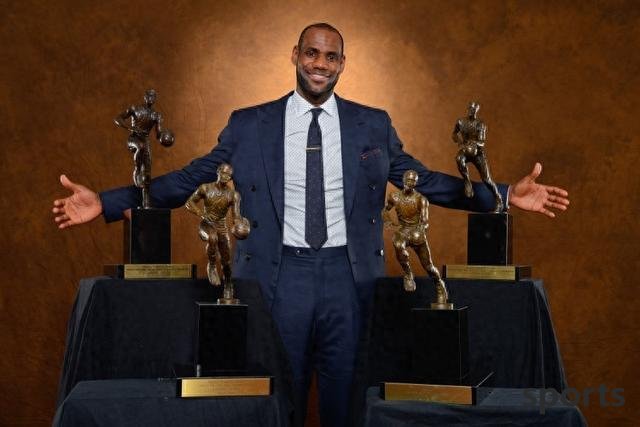
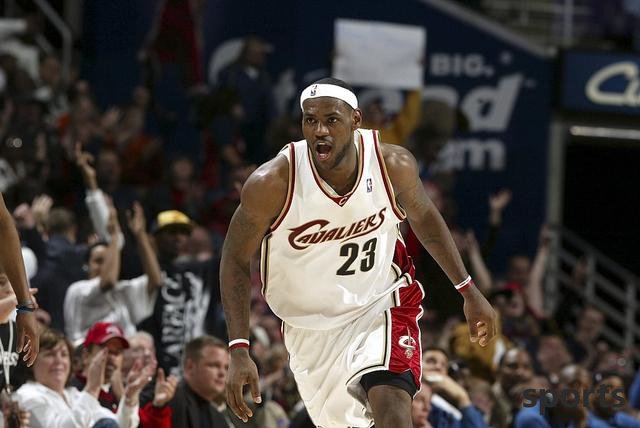
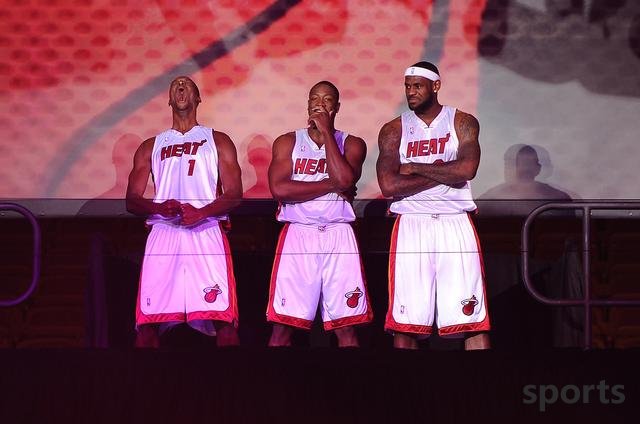
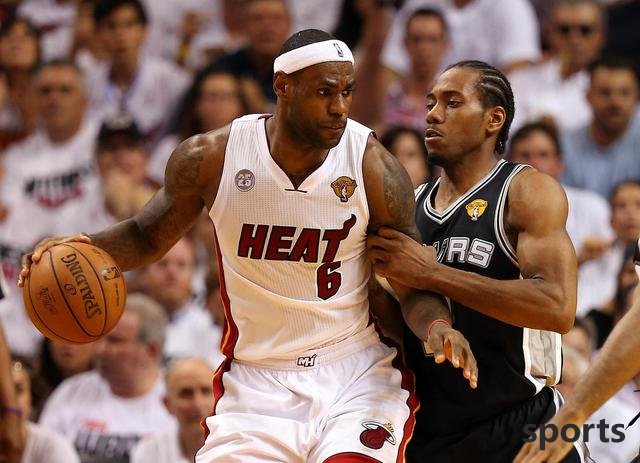
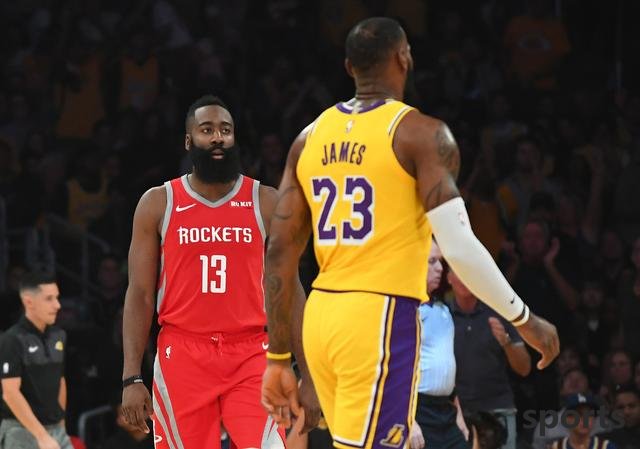
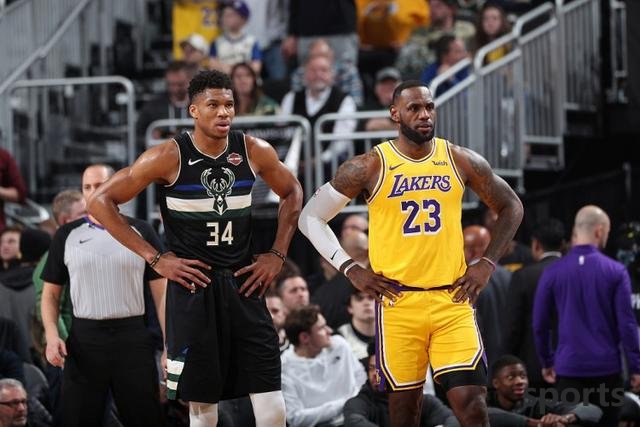
- Recent Posts
-
- What other players are involve
- Halliburton scored 31 points a
- After signing with the Trail B
- Shams: To better control the f
- Fighting doubts! From "playoff
- Only 4 minutes to score 2 poin
- Playing! 121 points were score
- Kuming s bonus is blocked! Rev
- Scored 43 points in 23 minutes
- Media person: Van Jordan is se
- Hot Posts
-
- After signing with the Trail B
- "NBA Finals G6" Thunder VS Pac
- Bill wants to complete a buyou
- Thunder substitute Caruso: Gre
- 2-1 in one game! WTA Berlin St
- First-time pick, 25th first-ro
- After the NBA Clippers trade,
- The latest news of the Warrior
- Rockets officially announced 5
- The Suns are finally going to
- Outrageous! The truth about th
- If 13 million is received, run
- US media questioned Yang Hanse
- Paul George undergoes surgery
- Is Paul expected to join the L
- On May 2, Pelinka s latest int
- 8 first rounds + 60 million sp
- Anthony: I ve been through man
- Cavaliers President: Mobley s
- The Warriors "beat" Gobert by
- search
-
- Links
-
